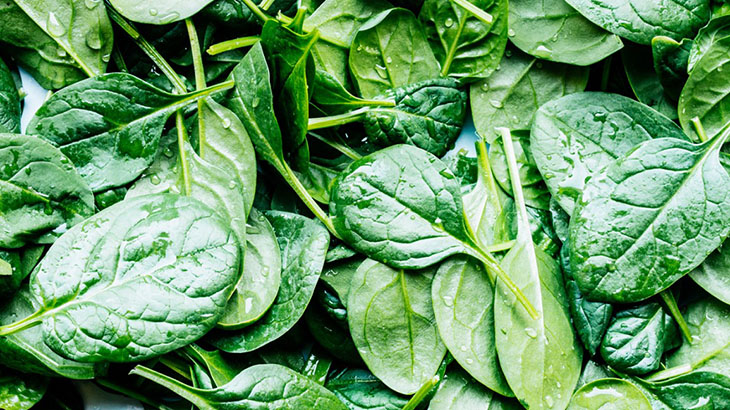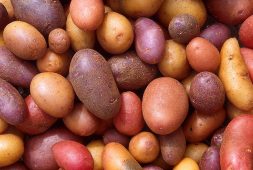1. Spinach

Spinach (Spinacia oleracea) is a green leafy vegetable native to Persia. It is a member of the amaranth family, which includes beets and quinoa. Furthermore, because it is high in nutrients and antioxidants, it is thought to be very healthy. Eating spinach may improve eye health, reduce oxidative stress, aid in cancer prevention, and lower blood pressure. Spinach can be prepared in a variety of ways. It can be purchased canned or fresh, and eaten cooked or raw. It tastes great on its own or in other dishes. Dark, leafy greens, such as spinach, are good for your skin, hair, and bones. Protein, iron, vitamins, and minerals are also present. Consuming spinach may have health benefits such as improving blood glucose control in diabetics, lowering the risk of cancer, and improving bone health. Furthermore, this vegetable contains minerals and vitamins that can provide a variety of benefits. Leafy greens, such as spinach, are high in oxalates but high in vitamins and minerals. A half-cup of cooked spinach has 755 milligrams of calcium.
Spinach is generally thought to be very healthy. However, it may have a negative impact on some people. Spinach contains a lot of vitamin K1, which has several functions in the body but is best known for its role in blood clotting. As a result, it may interfere with blood thinners. People who take blood thinners, such as warfarin, should consult their doctor before eating large amounts of spinach. Acid and mineral salt buildup causes kidney stones. Calcium stones, which are composed of calcium oxalate, are the most common type. Because spinach is high in calcium and oxalates, people who are at high risk of developing kidney stones should limit their consumption.
Spinach contains a lot of potassium. This substance, in high concentrations, can be harmful to people who have impaired kidney function. This vegetable is a nutrient-dense and cost-effective vegetable in our diet. However, many varieties contain high levels of oxalate, a natural plant compound that can cause kidney stone formation. Eight spinach varieties with low oxalate levels have now been identified by researchers. They looked at the genetic code of 310 spinach varieties and discovered six DNA markers that influence oxalate levels. Knowing the oxalate concentrations in these varieties can assist spinach breeders in lowering oxalate concentrations. Spinach contains more oxalate than most crops, but it is an economically important vegetable crop around the world and is considered healthy due to its high concentration of a number of key nutrients. Spinach contains a lot of dietary oxalate, which is a compound that binds to calcium in your body and prevents it from being absorbed. Consuming oxalate-rich foods also increases oxalate excretion through the urine, which can result in the formation of calcium oxalate kidney stones). There are several types of kidney stones, but calcium oxalate is thought to make up about 80% of them. Those who are at high risk of kidney stones are often advised to limit their intake of oxalate-rich foods such as spinach. Boiling spinach can reduce dietary oxalate concentrations by up to 87 percent.



